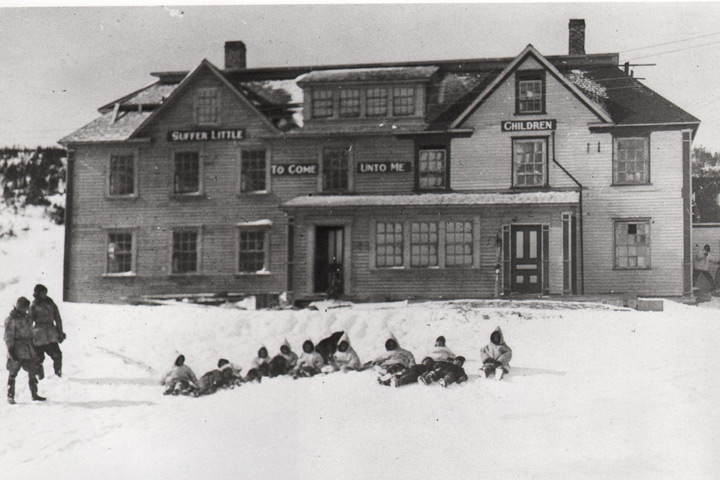OTTAWA – The Truth and Reconciliation Commission, which documented the haunting legacy of Canada’s residential schools, is set to present its final report Tuesday to the parties in the class-action settlement that led to its creation.

Justice Murray Sinclair, who has led the TRC’s exhaustive investigation over the past six years, said each member of the agreement will receive a copy of the massive findings to complete the commission’s obligation.
The Indian Residential Schools Settlement Agreement was reached after former residential school survivors took the federal government and churches to court with the support of the Assembly of First Nations and Inuit organizations.
The arrangement was designed to help repair the lasting damage caused by the schools, and – in addition to compensating survivors – to explore the truth behind the government-funded, church-operated assimilation program that existed in Canada from the 1870s to 1996.
After unveiling its summary in June, which included the key finding that the residential school system facilitated nothing short of “cultural genocide,” the TRC will now release hard copies of the full report.

Get breaking National news
Each copy weighs about 25 pounds, Sinclair estimates. But that’s nothing compared to the work’s emotional heft.
“Every time I stand in front of a crowd – particularly of survivors, but a crowd generally – and I talk about the issue of residential schools, I always wonder if I can get through it,” Sinclair said.
“It is always such a challenge because it … has been a very demanding piece of work and that alone would be enough to cause difficulty to talk about. But more importantly, there’s so many people who have been part of this who are no longer with us.”
Among the commission’s 94 recommendations was a national public inquiry to examine the phenomenon of missing and murdered aboriginal women – a demand long resisted by former prime minister Stephen Harper.
Last week, the new Liberal government set the wheels in motion by kicking off the “design phase” of the long-awaited inquiry.
The pre-inquiry consultation involves speaking to victims’ families and aboriginal organizations.
“They’ve taken steps to carry out that commitment and that’s important,” Sinclair said.
Prime Minister Justin Trudeau has also approached aboriginal issues in a more respectful manner, he added.
“In our calls to action, in our summary report, we did talk about the importance in leadership and the importance of there being a national voice around reconciliation,” he said.
“It is also about changing the way we talk to and about each other.”
Sinclair, the first aboriginal judge appointed in Manitoba, said he’s hopeful there will be a broad discussion about the inquiry and its terms of reference, and that the inquiry is tasked with exploring whether systemic issues are at play.
“I think really the emphasis is going to be to try to answer the big questions of what happened and why?” Sinclair said.
“It is not just the families, it is also Canadian society. I think Canada needs to know as well why is this happening and is it happening elsewhere? That’s a bigger question … is this going on around the world?”





Comments
Want to discuss? Please read our Commenting Policy first.